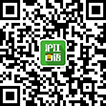考研英语阅读命题思路透析和真题揭秘(58)
Text 4
Americans today don‘t place a very high value on intellect. Our heroes are athletes, entertainers, and entrepreneurs, not scholars. Even our schools are where we send our children to get a practical education--not to pursue knowledge for the sake of knowledge. Symptoms of pervasive anti-intellectualism in our schools aren't difficult to find.
"Schools have always been in a society where practical is more important than intellectual," says education writer Diane Ravitch. "Schools could be a counterbalance."Razitch‘s latest bock,Left Back: A Century of Failed School Reforms, traces the roots of anti-intellectualism in our schools, concluding they are anything but a counterbalance to the American distaste for intellectual pursuits.
But they could and should be. Encouraging kids to reject the life of the mind leaves them vulnerable to exploitation and control. Without the ability to think critically, to defend their ideas and understand the ideas of others, they cannot fully participate in our democracy. Continuing along this path, says writer Earl Shorris, "We will become a second-rate country. We will have a less civil society."
"Intellect is resented as a form of power or privilege," writes historian and professor Richard Hofstadter in Anti-Intellectualism in American life, a Pulitzer Prize winning book on the roots of anti-intellectualism in US politics, religion, and education. From the beginning of our history, says Hofstadter, our democratic and populist urges have driven us to reject anything that smells of elitism. Practicality, common sense, and native intelligence have been considered more noble qualities than anything you could learn from a book.
Ralph Waldo Emerson and other Transcendentalist philosophers thought schooling and rigorous book learning put unnatural restraints on children: "We are shut up in schools and college recitation rooms for 10 or 15 years and come out at last with a bellyful of words and do not know a thing." Mark Twain‘s Huckleberry Finn exemplified American anti-intellectualism. Its hero avoids being civilized--going to school and learning to read--so he can preserve his innate goodness.
Intellect, according to Hofstadter, is different from native intelligence, a quality we reluctantly admire. Intellect is the critical, creative, and contemplative side of the mind. Intelligence seeks to grasp, manipulate, re-order, and adjust, while intellect examines, ponders, wonders, theorizes, criticizes and imagines.
School remains a place where intellect is mistrusted.Hofstadter says our country‘s educational system is in the grips of people who "joyfully and militantly proclaim their hostility to intellect and their eagerness to identify with children who show the least intellectual promise."
56. What do American parents expect their children to acquire in school?
[A] The habit of thinking independently.
[B] Profound knowledge of the world.
[C] Practical abilities for future career.
[D] The confidence in intellectual pursuits.
57. We can learn from the text that Americans have a history of
[A] undervaluing intellect.
[B] favoring intellectualism.
[C] supporting school reform.
[D] suppressing native intelligence.
58. The views of Ravish and Emerson on schooling are
[A] identical.
[B] similar.
[C] complementary.
[D] opposite.
59. Emerson, according to the text, is probably
[A] a pioneer of education reform.
[B] an opponent of intellectualism.
[C] a scholar in favor of intellect.
[D] an advocate of regular schooling.
60. What does the author think of intellect?
[A] It is second to intelligence.
[B] It evolves from common sense.
[C] It is to be pursued.
[D] It underlies power.
[第56题答案] C
[第57题答案] A
[第58题答案] D
[第59题答案] B
[第60题答案] C
猜你喜欢
- 来日留学不可不知的十大APP
小编根据自己的留学生活经验给大家推荐以下十款必备的App,几乎涵盖生活的方方面面,无论你是找兼职还是要网购,是阅览资讯还是观看视频,都能提供极大便利。
- 出国留学中介前十名介绍 沪江是最好的选择
想要出国留学却没有时间没有精力去办理出国留学的手续,这个时候寻找一个好的出国留学中介就成了最好的办法,好的中介可以让自己更合理的去挑选自己喜欢的国家和学校,而且中介还有出国培训相关的内容,这...
- 日本动漫游戏:学校的圣域
feng社第9作第1弹《彼女のセイイキ(她的圣域)》,而系列的第2弹《妹的圣域》已于2015年08月28日发售,系列第3弹《学校的圣域》在2016年11月发售。
- 日本惊悚恐怖电影《裸体之夜:掠夺狂爱》
《裸体之夜2:掠夺狂爱》是由石井隆执导,竹中直人、佐藤宽子等领衔主演日本惊悚情色电影。该片讲述了主人公红次郎替年轻女孩加藤怜寻找叫“多绘”的救命恩人,结果踏入充满危机的“粉红”漩涡中。
- 秒变单身狗:哪些话不能对恋人说
恋爱初期总是美好而甜蜜的,然而两人长期处下来,就会发现对方的不足之处。生气起来口不择言,结果深深的伤害到两人的感情。这期给大家介绍一些对恋人可不能说的一些话。
- 「こんにちわ」是个啥?你知道吗?
常逛日站或是和日本朋友聊天的小伙伴们肯定经常会听到一句:こんにちわ,从发音上我们可以猜出来是こんにちは,但是这个こんにちわ是怎么来的呢?他又是什么呢?下面就让沪江日语教研君来告诉你吧!
- 动漫日语脱口而出:痛痛飞走了
看动漫不学日语?那就太可惜啦!花花团小组节目《动漫日语每日一句》,每天教大家一句动漫中的实用台词,让你在看动漫的同时学到地道日语口语。爱动漫,爱生活!一起来练习口语吧!


